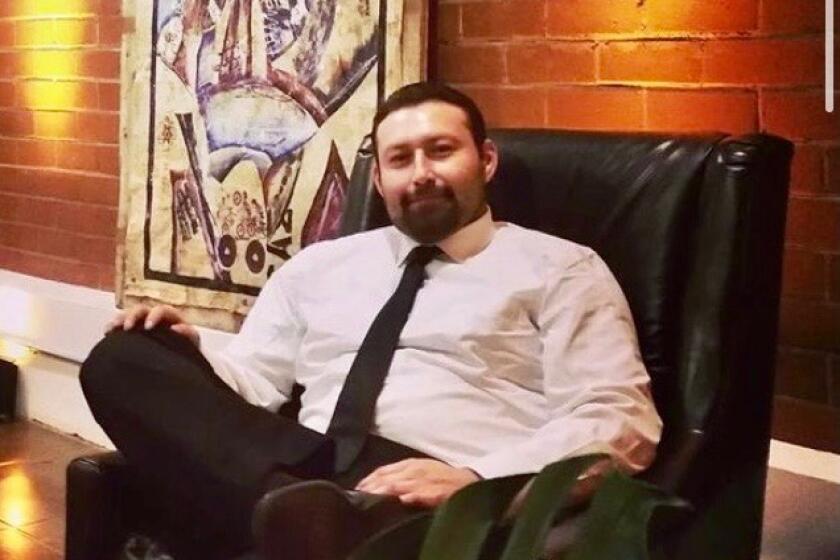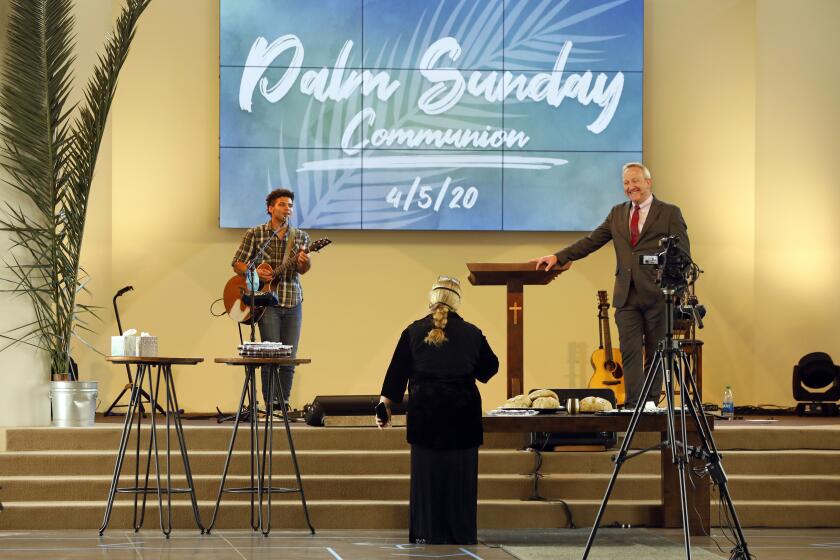Sacramento ponders a dull future without Kings
SACRAMENTO — For many, this city’s biggest selling point is its proximity to other, more exciting places, like the cosmopolitan hills of San Francisco or the ski slopes of Lake Tahoe.
But for almost three decades, there has been one thing people didn’t need to leave town for: professional basketball. For Sacramentans, the Kings are more than just an NBA franchise. They’re a sign that the city is not second-rate.
Fair-weather fans here are scarce; devotees have stuck with the Kings through miserable season after miserable season. The team is central to the vision of local politicians, planners and builders to make their downtown a more vibrant urban center with a new arena. The mayor, Kevin Johnson, is a former NBA star and one of the team’s biggest supporters.
PHOTOS: Sacramento faces loss of the NBA Kings
But now, after years of tormenting locals by flirting with out-of-town suitors, the Kings’ financially troubled owners have reached a deal to sell the team to a Seattle investment group. The buyers want to bring the team north and rebrand it as the Supersonics, restoring a franchise that bolted Seattle five years ago.
The pending loss of Sacramento’s only big-league sports franchise is a blow to a city with a long-standing inferiority complex. It didn’t help that Arnold Schwarzenegger refused to move here while he was governor, commuting by private jet from Los Angeles instead.
“They already call Sacramento a cow town,” said Alice Morrow, 55, who was tending bar in the city’s Midtown neighborhood. “And now we’re not even going to have a professional team?”
Situated in the northern reaches of the Central Valley, Sacramento helped anchor California’s gold rush and was the final destination for the first transcontinental railroad. More recently, the capital city has been an epicenter for suburban growth.
Today, it’s alive with farm-to-table eateries, hip cocktail lounges and artisan coffeehouses that attract plaudits from the elite of the food-and-drink-obsessed Bay Area.
Such amenities mean “the world doesn’t end if the Kings do leave,” said Roger Niello, president and chief executive of the Sacramento Metro Chamber and a former legislator.
But even those who eagerly defend Sacramento’s charms — which include a bounty of majestic trees and the gleaming white Capitol nestled in a 40-acre park — admit that losing the Kings would be a setback.
“If the Kings go, what do we have to look forward to?” said salesman Kimo Wong, 29. “A couple of concerts? Monster Jam?”
Moving the Kings to Seattle still requires NBA approval, which could come in April. Meanwhile, Johnson has launched a frantic effort to retain the team.
The mayor canceled his trip to President Obama’s inauguration and is forging a coalition of local business leaders willing to bid for the team. He’s hunting for investors who could put up the hundreds of millions of dollars necessary for a credible alternative plan.
“It’s bigger than basketball,” he said Tuesday at City Hall. “It’s about jobs. It’s about economic development. It’s about creating an identity.”
Sacramento’s built-in political class has rallied to the cause. When the Kings’ owners considered moving the team south to Anaheim, Republican consultant Rob Stutzman collected signatures in an effort to block public financing for a new arena there. The plan eventually fell through.
“Don’t think we won’t take a look at Seattle and what they’re going to do with public funds up there,” Stutzman said in an interview.
When the Kings moved to Sacramento from Kansas City in 1985, fans packed a small gym to watch their new hometown team practice, cheering on the players even during routine shooting drills. Since then, the Kings have sold out 19 of their 27 seasons.
The Kings often struggled but eventually hit their stride, winning division titles in 2002 and 2003. Bars filled with fans on game days, and the Sacramento arena gained a reputation as one of the loudest in the league.
David Taylor, a commercial real estate developer working with Johnson to keep the Kings in town, said having a winning team sent a message to potential investors: “This was a fun place to live. It’s an attractive place to live.”
But the Kings have fallen into trouble as the team lost talent and the arena slid into disrepair. Last year, ESPN ranked the Kings second to last of 122 professional sports teams on such benchmarks as fan relations, winning records and stadium experience.
The constant chatter about moving the team, which has received wall-to-wall news coverage in the local media, has exasperated fans who hate what has happened to the Kings. Walk into any sports bar and you’ll probably hear an unprintable stream of invective against the Maloof family, the team’s controlling owners since 1999.
Many feel they have managed the team poorly, and their attempts to move the Kings are seen as disloyal.
“Nobody wants the Kings to leave,” said Jennifer Copperberg, 37, who works at an insurance company and was sharing a beer with friends in East Sacramento. “But we’re tired of the Maloofs and want them to leave.”
On Wednesday, the Kings returned to Sacramento for their first home game since the deal to move the team was announced. A few thousand empty seats were a reminder that the Kings have seen better days, but there was no shortage of support from the rowdy fans who were there, even as Sacramento lost to the last-place Phoenix Suns.
An Air Force staff sergeant, once thrilled to be stationed at a nearby base so he could cheer his team on, was heartbroken that the Kings could leave. A middle-aged couple said they bought season tickets when they heard the team needed help.
Sacramento’s mayor sat courtside, munching on nachos, taking pictures with fans and throwing a free T-shirt into the crowd.
Doug Hulsebus, 50, of El Dorado Hills said the team won’t get the same adoration from Seattle.
“I don’t think anybody could love the Kings like Sacramento has,” he said.
More to Read
Sign up for Essential California
The most important California stories and recommendations in your inbox every morning.
You may occasionally receive promotional content from the Los Angeles Times.











